

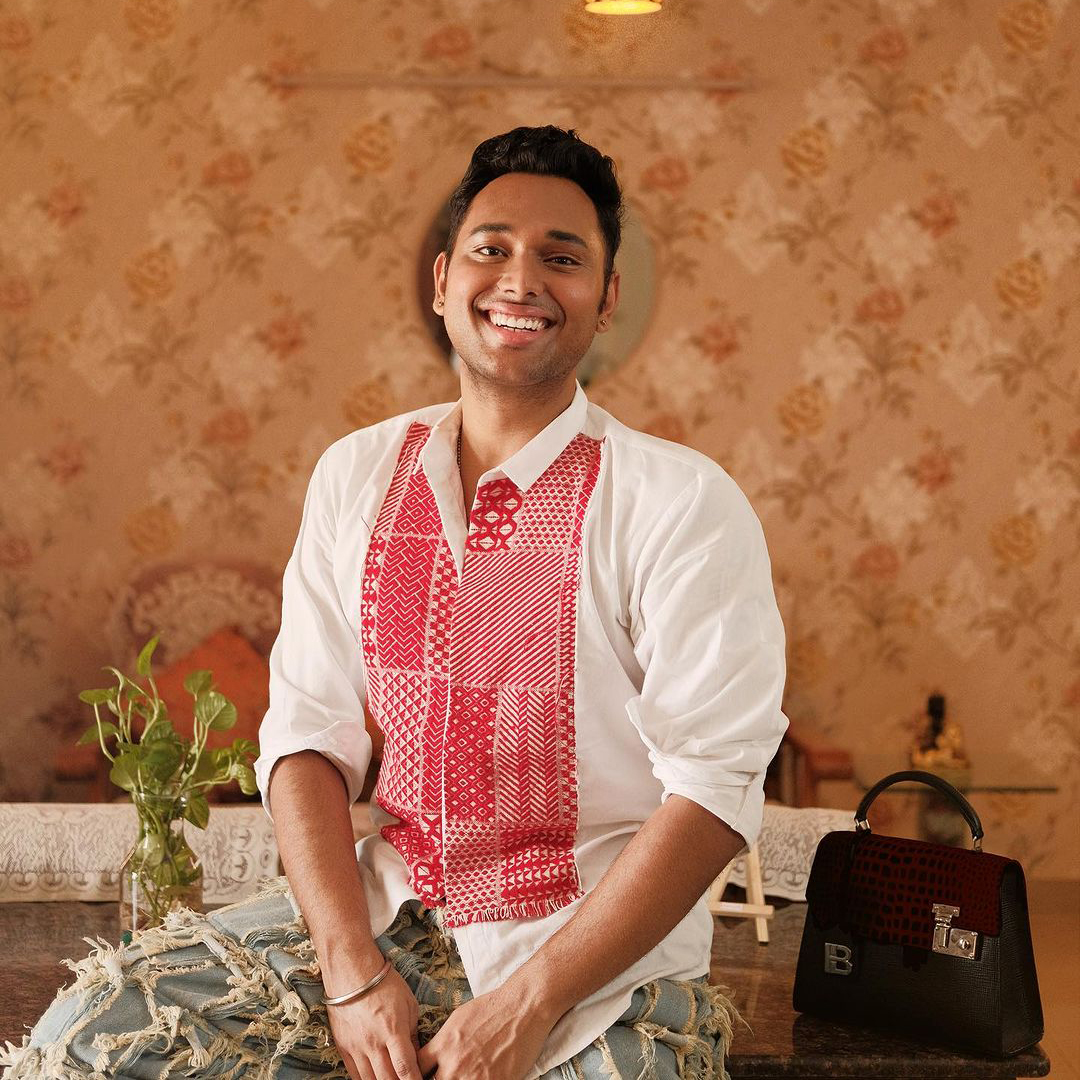
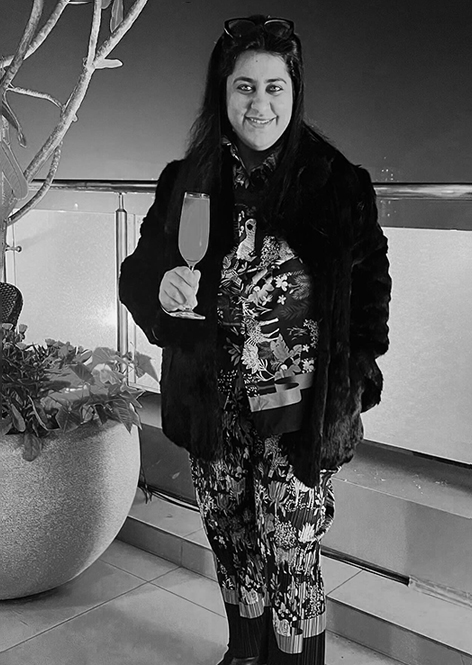

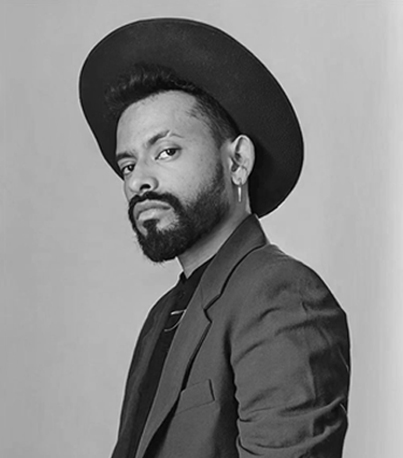


PUBLISHED ON July 26, 2024
Uttaran Bhuniya, an architect and gay man, had chosen to keep his sexuality under wraps at his first-ever professional internship. Being slightly effeminate, he recalls being pestered by other straight male colleagues to take part in their banter about women and admit to liking other women colleagues. After refusing to comment for a while, he told them that he was gay. The colleagues then said, “We were just coaxing you because we wanted to hear this from you.” Uttaran felt odd that they'd do this, just to force someone to come out of the closet.
Following that experience at his first-ever workplace, he decided to come out and be open about this sexuality at all workplaces after that. He says, in his experience, people have dealt with him differently before and after finding out. “Sometimes people ask me very inappropriate questions when they find out I'm gay. Sometimes I educate them, but sometimes I feel like people do it for the fun of it,” he said.
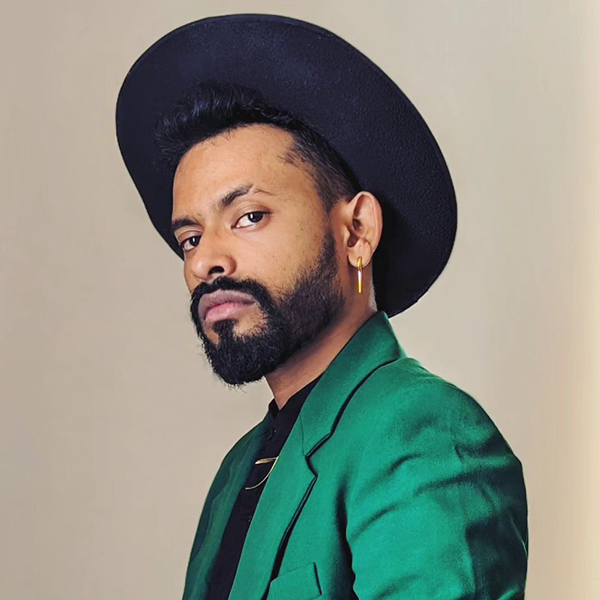
Uttaran Bhuniya
He added that reactions from straight men are usually the weird bit. “Many straight guys tend to keep themselves away from me. They think I may hit on them or something. A lot of straight men think that gay people would automatically try to hit on them, which is weird.”
Sometimes people ask me very inappropriate questions when they find out I'm gay. Sometimes I educate them, but sometimes I feel like people do it for the fun of it. - Uttaran Bhuniya, an architect
Uttaran's experience isn't an isolated one. Navigating workspaces as a queer individual in India can still be a challenge, ridden with intrusive questions, joking banter and judgemental looks. Fearing bias, many choose to hide their identities. Yet, enough data and research point to how companies and teams flourish when they adopt inclusive policies.
Members from the community also make up a large part of the population. There is no official data on the LGBT population in India, but the government estimates there are 2.5 million gay people, reflecting those who have declared their sexuality to the Health Ministry.
Indian workplaces have tried to make big strides towards being inclusive and diverse. However, in reality, myriad issues plague the LGBTQIA community, as they strive to find equitable opportunities and facilities at workplaces. HerZindagi spoke to members of the community, transpersons who work as advisors to workplaces to DEI (Diversity, equity, inclusivity) experts to decode the problems and find solutions to them.
Perils Of Being Open At Workplaces
Overarchingly, LGBTQ people prefer to keep their identities under wraps at workplaces. According to a survey and paper published in the International Journal of Social Science Research, out of the 103 surveyed individuals, only 17 responders said that they were completely open about their orientation whereas six were partially open. Eight survey takers reported having faced negativity after opening up about their sexuality.
Coming out is often riddled with uncomfortable questions and situations.
Gurnoor Kaur Behl, Founder and CKeyO of House Of GKB said, “When I came out to my team, in the gaming industry, (I was the only woman in that team), they eventually started treating me as one of the guys. That’s fine, until a certain level, except just because I like women, doesn’t mean that I’m a guy. That was something that started to hamper my mental health,” she said. “Even though they were accepting, they weren’t understanding enough. It wasn’t biased perceptions per se, but people didn’t know how to deal with a queer person.”
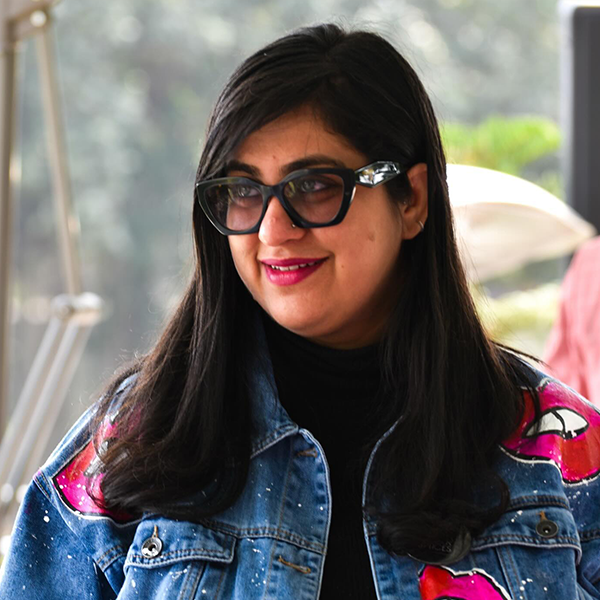
Gurnoor Kaur Behl
There may be people in workplaces, who don’t even understand what being queer is or how to treat them as normal members of society. People also tend to have preconceived notions and sometimes have strong opinions about homosexuality. - Lakshay Gupta, Software professional at a streaming company
Ashish Chopra, who works in an MNC, has been open about his sexuality, but faced presumptions, even though they were intended well. “One time my manager told me that rather than a target of 10, I could do eight, just because I was gay. My manager had a bias that all LGBTQIA+ people go through trauma and will not be able to perform well at work,” he said.
“Though he came from a good place, I always tell people to ask and never assume. I overperformed and did better than the others eventually.”
One time my manager told me that rather than a target of 10, I could do eight, just because I was gay. My manager had a bias that all LGBTQIA+ people go through trauma and will not be able to perform well at work. - Ashish Chopra, works at an MNC.
Fear of bias, discrimination and judgement keep people from coming out. Concerns for safety and their personal circumstances also play a role in deciding whether they come out or not.
Lakshay Gupta, a software professional said, “By and large, people from the community, like to keep their identities or sexualities undercover. This is often because there are people from everywhere in workspaces. There may be people who don’t even understand what being queer is or how to treat them as normal members of society. People also tend to have preconceived notions, and sometimes have strong opinions about homosexuality.”

Lakshay Gupta
However, both Gurnoor and Uttaran, the architect, added that being open about their identities worked best for them. “I’ve noticed, I work better when I’ve revealed my identity, as I’m freer to be myself,” said Gurnoor.
Inequal and Missed Opportunities
Sushant Divgikar, also known as Rani Kohenur, was greeted by a transwoman at the reception during her recent stay at a hotel. Sushant, a drag performer and transwoman, describes this as a standout example. “How often do we see people from the LGBT community, wearing their identities on their sleeves, and openly being who they are at workplaces? How often do we come to see them in the public-facing, customer-facing roles, with companies backing them, as they would back every other employee?” she asked.
-
1Just under $200 billion (6% of GDP) can be assumed to be earned income from India’s estimated 45 million LGBTQ people
-
2A review of the top 50 Fortune 500 companies found productivity to be one of the most frequently mentioned commercial benefits of adopting LGBT-inclusive policies
-
383% of more than 3000 LGBT+ people would prefer to work with visible LGBTQ leaders.
-
472% of allies say they are more likely to accept a job at a company that’s supportive of LGBT employees.
A study conducted by the Nation Human Rights Commission in 2018 stated that 96% of transpersons are denied jobs and 92% are denied participation in any economic activity.
“Horizontal reservation should be there for trans people because they often don't have equal opportunities and access to gain education earlier,” said Sushant, a transwoman.

Sushant Divgikar, aka Rani Kohenur
Lost opportunities are a reality for other queer people too, albeit in different forms.
“As an entrepreneur, I have been told things like ‘You should keep your queerness on the down low, because people talk’, or ‘You won’t get clients’. I also do know people were nice to me but turned out to be homophobic, so never ended up working with me,” said Gurnoor. “An added factor is being a woman, and thus in my early days, there was quite a struggle of being taken seriously or finding clients.”
Why Diversity Is Needed
Everyone we spoke to emphasised why diversity and inclusivity are the need of the hour, and how companies and teams benefit from it.
Ashish explained this with examples from the biggest names in the Tech industry. “When Google was working on the Pixel camera, it was mostly white people making it, so the camera detected white people as humans and black people as animals. That resulted in people boycotting it, till they worked on it.”
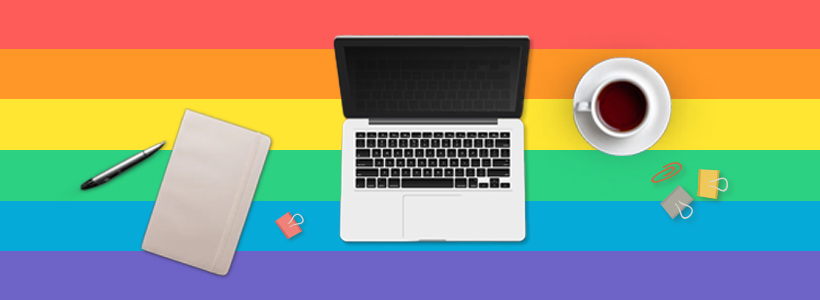
Another example he brought up, was when YouTube introduced the video upload feature in its iOS app, and found that approximately 10 per cent of the first videos uploaded were upside-down, which puzzled the engineering team. They were surprised by how many users were recording videos incorrectly. Eventually, they discovered that the app had been unintentionally tailored exclusively for right-handed users. They hadn't taken into account that phones are often rotated 180 degrees when held in a user’s left hand.

Anwesh Sahoo
“All these examples clearly show that we need diverse people to build products for everyone. Be it gender, race, sexuality, people with disabilities, caste, religion, geographical diversity and so much more,” he added.
Gurnoor, the entrepreneur said, “Diversity at the workplace is most important, and I’ve seen that from both the perspective of an employee and an employer. Diversity brings in a lot of fresh perspectives and creativity. I find myself opening up to different ways of looking at things bringing in new experiences, and building something greater. Diversity also makes people feel more accepted.”
Diversity opens our brains up. People come from similar places, and hang out with the same people and their worlds tend to become narrow, and their ideologies become one-track. Diversity broadens people’s minds. - Uttaran Bhuniya, an architect.
Uttaran, the architect added that diversity opens our minds and worlds up. “Diversity opens our brains up. People come from similar places, and hang out with the same people and their worlds tend to become narrow, and their ideologies become one-track. Diversity broadens people’s minds.”
He added, “Diversity is also important because we learn about our privileges, which come with awareness. To create a safe space around, and for personal growth, that is very important.”
Companies (and the Economy) Benefit From Being Openly Queer-Friendly
A 2014 report by U.S.-based economist M.V. Lee Badgett, that is also part of a World Bank study highlighted how homophobia cost India's economy between 112 billion rupees ($1.9 billion) and 1.7 trillion rupees ($30.8 billion) in 2012.
While there have been major milestones since 2012, like the decriminalisation of Article 377, the fact that companies gain majorly by being queer-friendly stands equally correct, even today.
An Open for Business report stated that, “Stronger financial performance flows from the increased ability of LGBT+ inclusive companies to attract and retain talent, to innovate, and to build customer loyalty and brand strength.”
An essay published in the Observer Research Foundation highlights, “The core challenge stems from the pervasive roots of stigma and discrimination, which manifests in constraints on labour supply and reduced productivity, which has subsequent losses in economic output. These adverse effects are intricately linked to elevated rates of poverty, depression, and suicide within the LGBTQ+ community, culminating in significant socio-economic setbacks.”
Brain drain is another aspect of how the economy suffers. People from the community often choose to leave the country, in search of better queer-friendly policies and laws abroad.
How Can Companies be Queer-friendly?
While companies may theoretically be queer-friendly, most spaces don’t have adequate policies, facilities and sensitisation in place to actually make queer folks comfortable.
“A friend of mine, while at work, wanted to go through transition. She started using the woman's washroom after starting hormones and dressing as herself. Women in the organisation started complaining that they didn't feel comfortable when "he" used the women's washroom,” recalled Ashish, the entrepreneur. “It was the organisation's fault that they did not have gender-neutral washrooms and didn’t sensitise their employees.”
What companies can do
-
 Gender-neutral washrooms
Gender-neutral washrooms -
 Health insurance benefits for same-sex partners
Health insurance benefits for same-sex partners -
 Using pronouns and gender-inclusive language in documents
Using pronouns and gender-inclusive language in documents -
 Make dress codes more gender neutral and inclusive
Make dress codes more gender neutral and inclusive -
 Sensitisation programmes
Sensitisation programmes -
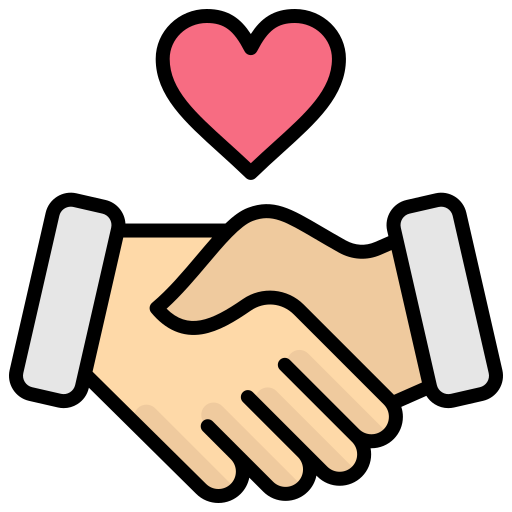 Specify “queer-friendly” in job listings and company profile
Specify “queer-friendly” in job listings and company profile
Sushant Divgikar, aka Rani Kohenur, a transwoman highlighted that while there may be awareness, what’s most lacking is sensitisation. “How many people have been trained to deal with gender as a spectrum? Now awareness could range from 0.01 to 100. In my experience as an advisor or consultant for brands, I found that it was at 0.01 in most organisations.”
Lakshay Gupta, the software professional said that training for all employees should be part of induction modules.
Uttaran, the architect highlights that companies while putting out job postings, should write that it is queer-friendly and that it doesn’t discriminate. “Or if you’re looking to diversify, specify that Dalits, Bahujans, queer people preferred. It encourages many to apply,” they added. Defining a space safe for queer people makes it more inclusive and safer for all.
If you’re looking to diversify, specify that Dalits, Bahujans, queer people are preferred. It encourages many to apply. Conversations about queer people, class, caste etc should be encouraged. - Uttaran Bhuniya, an Architect.
He added, “Conversations about queer people, class, caste etc should be encouraged. People don't talk about it enough, so their curiosity or opinions often come out in weird ways and timings.” He added that counselling and therapy should be part of all corporate offices.
Most people we spoke to, agreed that more than blatant bias or discrimination, it was just awkwardness or inability to normalise this, that they struggled with.
Partnering with LGBT communities, encouraging everyone to introduce themselves with their pronouns, using gender-neutral language, having same-sex partner benefits and adopting strong anti-discriminatory policies in place are other steps companies can take.
Allies at the workplace also play a big role in making spaces safer. Ashish, the entrepreneur, said, “There are times when allies have the power to make decisions, in terms of policy and infrastructure. Putting their pronouns in emails, having a rainbow sticker, lanyard can make queer people feel safer.”
Sushant highlighted while companies should do all of the above, they shouldn’t sensationalize it. “The moment you sensationalize a particular community you are doing more harm to them than good. I’ve seen people suddenly take the cause up in June when it's pride month, and make people who are trans in the organization come to the fore, and sometimes forcibly put them on pamphlets and banners, just so the company can win a DEI award. You can't do that because, at the end of the day, they are as much for the rest of the 11 months your employees as they are for this one month.”